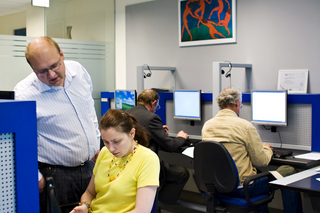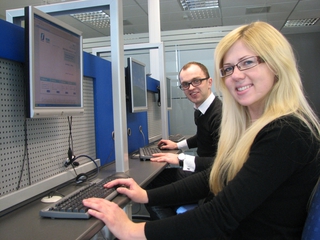Penki Кontinentai Training Center was set up in one of the oldest and most innovative ITT companies, and now counts the second decade. Politicians, businessmen, artists and entertainers have learned and acquired skills here during these years.
 Our ancestors used to say that it is never too late to learn. The twentieth century has paraphrased this folk wisdom in a different concept – “lifelong learning”. What is it? What are the opportunities for lifelong learning? Why should it be done?
Our ancestors used to say that it is never too late to learn. The twentieth century has paraphrased this folk wisdom in a different concept – “lifelong learning”. What is it? What are the opportunities for lifelong learning? Why should it be done?
Then and now
Imagine a simple situation: a few decades ago, when you were still a child, one day your mother declared that she had entered the college and joined the colorful crowd of students! You would probably look instinctively at the calendar - perhaps you forgot it is the April Fools' Day today? The news just strikes you! Your mother, who is over her forties, has become a student, just like a graduate! Moreover, she decides to start studying economic theory when she has been a tailoring graduate! Indeed, we must acknowledge that during the Soviet regime such a situation would have been utopian. Today, as the twenty first century progresses, you would not be surprised if even your grandmother told you that from now on she and her neighbors would not only listen to folk music radio programs, but she would also master some technologies – she has signed up for computer literacy classes for seniors!
I am proud to say that I am a lifelong learner
As the country borders have opened, people’s minds are becoming more liberal and the market demand is growing, it is natural that the educational institutions are attractive even to elderly seniors who complement their life experience with the theoretical knowledge and practical skills. Europe is aging rapidly, so it is particularly important that older people are more creative and more active. On the contrary, even a toddler, who has not learnt how to walk yet, is involved in the education process in order to feel the bitter taste of roots of education in his early infancy. The taste is getting more bitter; well, gradually, of course, because while you’re playing with rattles on colorful cushions, stamping around your little feet, or moulding your first work of art out of clay which often reminds a corn, the only thing you feels is sweetness…
The European Commission helps us to study almost from birth to old age. The responsible authorities have integrated various education and training initiatives into one common Lifelong Learning Programme. With nearly a 7-billion budget for 2007-2013, the Programme has changed education, training and online training programs that were completed in 2006.
From preschool children to seniors – a school desk is fashionable!
The new Lifelong Learning Programme allows people of all ages to seek the exciting education opportunities throughout Europe. It consists of four sub-programs: Comenius (for schools), Erasmus (university), Leonardo da Vinci (vocational education and training), and Grundtvig (adult education).
Europe is changing fundamentally in order to become the leading knowledge-based economic area worldwide. Thus, knowledge and the resulting innovations are becoming the most valuable treasure of the EU in the increasing global competition, so high-quality primary, secondary and higher education is now more important than ever before. The current vocational education and training has to continuously update the qualification base of EU citizens so that they would be prepared to overcome today’s challenges and grasp new emerging technologies. The European Union has already developed a viable general market and introduced the euro. The third challenge is to complement these achievements with truly European labor market, where well-educated and trained citizens could use their qualifications in other countries. However, learning is not confined to a luggage full of knowledge acquired at university - it is very important to invest in your own competence to acquire the skills that would help to not only pursue careers and reorient fast in the labor market, but also feel constant personal development and growth.

Why Penki Кontinentai?
Penki Кontinentai Training Center was set up in one of the oldest and most innovative ITT companies, and now counts the second decade. Politicians, businessmen, artists and entertainers have learned and acquired skills here during these years. The courses were attended by students, housewives, as well as elderly seniors. The Training Center, which is faithful to continuity and therefore the principle and values of lifelong learning, invites students, specialists and seniors to study here all year round at your convenience. Courses can be group or individual depending on one’s desires and pocket. Schedules are drawn up taking into account the activity calendar of studying persons. The Training Center was established in a strategically attractive place in the capital of Vilnius, which is easy to reach from any point of the city. Moreover, you can safely leave your car in a large parking area. Time and technology is in a hurry. You hurry up too!
A detailed description of training courses at the Training Center >>>